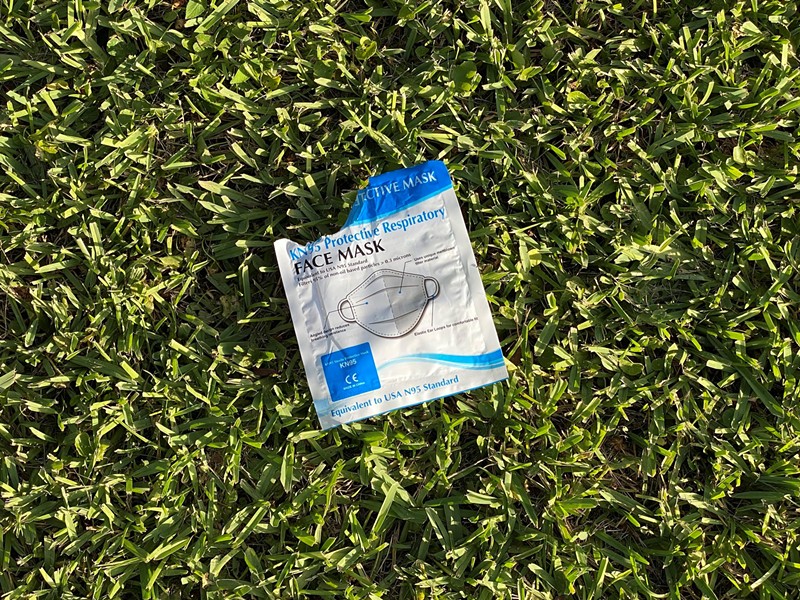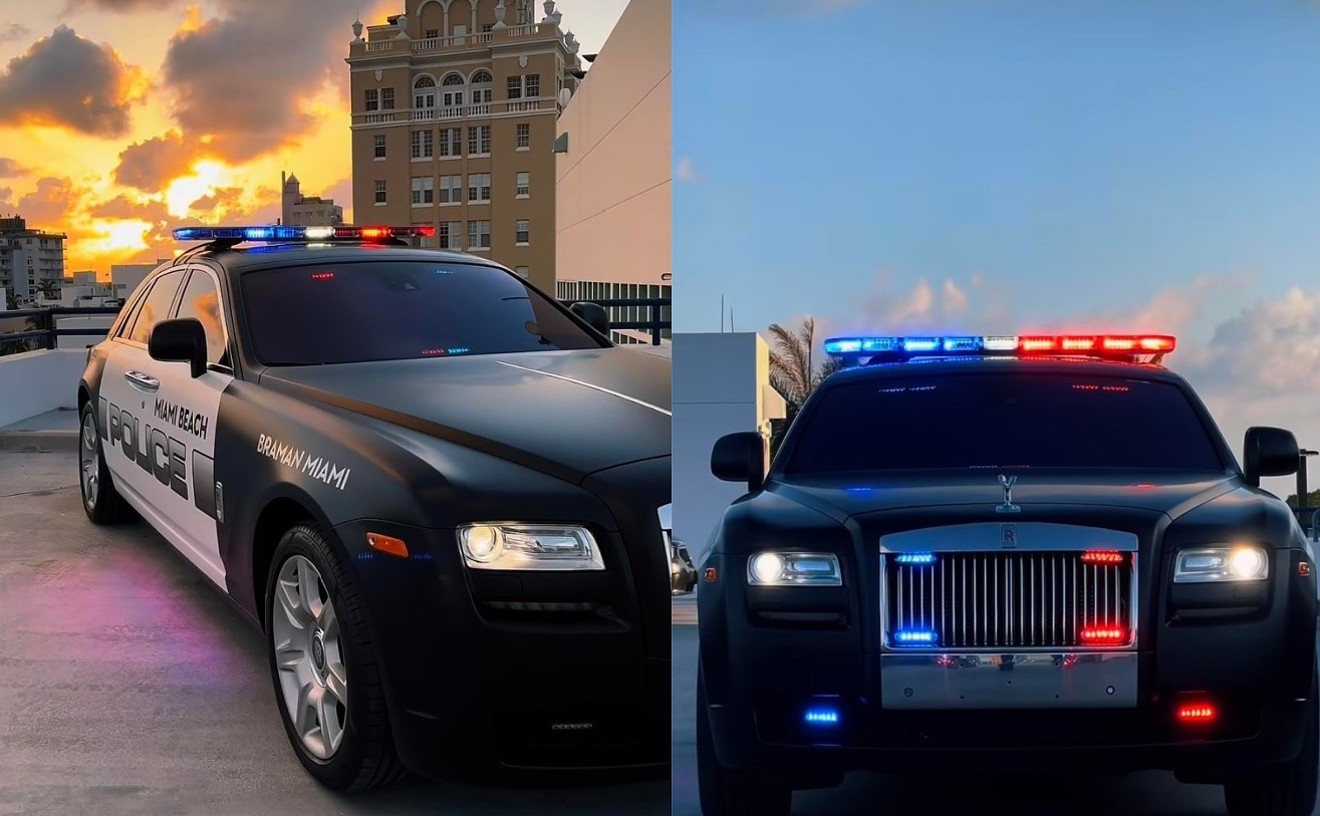Your right to swing your arms ends just where the other man's nose begins.
That old saying is at the heart of Miami-Dade County's argument in a heated court case over whether its mandatory mask order violates constitutional rights.
The case was filed by Miami resident Linda Cuadros, who claims her rights to privacy and due process are trampled by the countywide emergency order requiring people to wear facial coverings in public to curb the spread of the novel coronavirus. Alleging violations of the state constitution, Cuadros says the mask order intrudes on the right of Floridians to make personal healthcare decisions and subjects residents to an "overreach of their local government not seen in the history of Florida."
County attorneys last week asked a judge to toss the lawsuit. They claim Cuadros, who owns a travel agency, is putting her disdain for a minor inconvenience ahead of "other people's rights to protect their own bodies" from the virus.
"Plaintiff's purported freedom to spread disease finds no constitutional support," the county argues.
Lest anyone think the court battle has descended into legal tedium, Miami-Dade's lawyers are comparing breathing in public without a mask to crapping in the middle of the road.
"The County Order doesn't mandate Plaintiff to take something into her body. It mandates that she prevent infectious virus particles from coming out of her body. Plaintiff's view of the right to refuse medical treatment would not only allow a person to refuse an anti-diarrheal medication — it would also allow that person to defecate on the street," the county argues.
Cuadros' lawyer, state Rep. Anthony Sabatini, has filed similar legal challenges to local mask requirements in Alachua County, Leon County, Orange County, Martin County, the City of St. Augustine, the City of Jacksonville, and the City of DeLand, among other places. Some of his clients who have medical conditions that make wearing a mask difficult are being harassed and refused entry into stores, he says.
Throughout July, Miami's public-health system has warned of a surge in severe cases of COVID-19. Yet Sabatini remains firmly in the camp of anti-mask activists who believe the health risks posed by the virus are exaggerated. He tells New Times that constitutional rights "should not be stripped away as a tool to increase safety" for what he sees as a small, vulnerable portion of the population who could become deathly ill from the virus.
The 31-year-old Lake County lawmaker and attorney is unswayed by reports that the number of COVID-positive patients on ventilators in local hospitals more than doubled in July. Miami-Dade's July 21 report listed 320 COVID patients on ventilators. That figure stood at 118 patients on July 1.
So far, Sabatini's anti-mask crusade has not secured a win in Florida courts. Judges in Alachua and Leon counties rejected claims that mandatory mask orders in those jurisdictions violate constitutional rights. The Alachua County judge wrote that personal liberty is finite and "does not afford one person rights at the expense of another."
The still-pending lawsuits are facing an uphill battle in showing that the Florida Constitution's protection against "governmental intrusion into [a] person's private life" remains in place once a person walks into a public space.
As Miami-Dade's legal team frames it, "Going into public spaces requires a person to [subordinate] their fashion wishes to the moral, aesthetic, and legal judgment of society." The county cites how Florida's motorcycle-helmet law was upheld in court, and how a federal judge ruled in the 1980s that the City of Miami could bar nudists from getting naked on the beach.
Elsewhere in the U.S., some constitutional challenges to mask orders during the coronavirus outbreak have prevailed. A Louisiana judge recently blocked a City of Shreveport executive order that forced people to wear facial coverings inside local businesses, the Shreveport Times reported.
The debate over whether mask-wearing should be mandated has driven a stake in the proverbial sand separating Georgia Gov. Brian Kemp and Atlanta Mayor Keisha Lance Bottoms. Kemp sued Bottoms last week for ordering Atlantans to wear facial coverings in spite of state restrictions on cities' power to handle infection-control regulations.
In Florida, Gov. Ron DeSantis has declined to issue a statewide mask order, saying that decisions on the issue should be left to local governments.
Looming over the wave of anti-mask litigation is a 115-year-old U.S. Supreme Court case. It involved a man's fight against a Massachusetts city's policy of fining people for refusing to be vaccinated amid a smallpox outbreak at the turn of the 20th Century. Claiming he had an adverse reaction to a past vaccine, Henning Jacobson argued that the city policy violated his constitutional rights.
The Supreme Court found that Jacobson, a Lutheran pastor, was fit for vaccination and that the city had the power to order it. The court noted that "the rights of the individual" may, "under the pressure of great dangers," be restrained "by reasonable regulations as the safety of the general public may demand."
The landmark decision was cited in May by the Supreme Court when it upheld California's cap on the number of people allowed in places of worship during the COVID-19 outbreak.
Sabatini calls the 1905 court case "dusty."
"The Jacobson case predates all the modern concepts of jurisprudence. It doesn't really say anything specific. It says something that everyone agrees with: that the [government] has police powers, which have to be balanced with individual rights," Sabatini tells New Times.
Miami-Dade County attorney David Murray declined to comment, citing the pending litigation.
In addition to the requirement that people cover their faces inside businesses, Miami-Dade on July 2 mandated facial coverings in public outdoor settings.
Last week, the county commission authorized civil citations of $100 for individuals who don't comply with the mask order. Exempt from the rules are children under two years old, as well as people with medical conditions that prevent them from wearing face coverings. Violations of the mask order (and any other emergency order) can be charged as a second-degree misdemeanor.
Even if a judge finds that the Miami-Dade mask order impinges on constitutional rights, it could be upheld under a tough legal standard called strict scrutiny. Under that standard, the county could keep the order in place by showing that it is "narrowly tailored" to serve a "compelling state interest."
[
{
"name": "Air - MediumRectangle - Inline Content - Mobile Display Size",
"component": "19274298",
"insertPoint": "2",
"requiredCountToDisplay": "2"
},{
"name": "Editor Picks",
"component": "17482312",
"insertPoint": "4",
"requiredCountToDisplay": "1"
},{
"name": "Inline Links",
"component": "18711090",
"insertPoint": "8th",
"startingPoint": 8,
"requiredCountToDisplay": "7",
"maxInsertions": 25
},{
"name": "Air - MediumRectangle - Combo - Inline Content",
"component": "17482310",
"insertPoint": "8th",
"startingPoint": 8,
"requiredCountToDisplay": "7",
"maxInsertions": 25
},{
"name": "Inline Links",
"component": "18711090",
"insertPoint": "8th",
"startingPoint": 12,
"requiredCountToDisplay": "11",
"maxInsertions": 25
},{
"name": "Air - Leaderboard Tower - Combo - Inline Content",
"component": "17482313",
"insertPoint": "8th",
"startingPoint": 12,
"requiredCountToDisplay": "11",
"maxInsertions": 25
}
]












